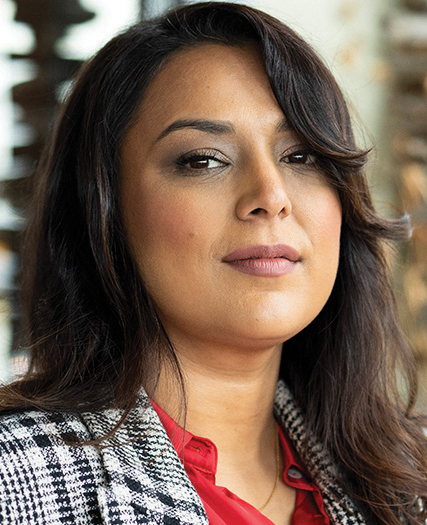Prioritizing physician health and safety
 |
| Dr Ramneek Dosanjh |
Significantly more influences our health than whether or not we are free of disease. Our holistic health—physical, mental, spiritual, and emotional—as individual physicians and the collective health of us as a profession is influenced by many internal and external factors. Now more than ever we must make our health and well-being a priority; without it, our profession has no chance of healing and promoting health in others.
We can assert control over some of the factors immediately, while others come with significant barriers or challenges that lead to issues such as burnout, an overwhelming workload, and a lack of physical and psychological safety. The pandemic has only exacerbated experiences of burnout, stress, and even violence and bullying, leading to increased mental and physical health concerns for physicians.
So, how do we heal ourselves while also healing the system in which we operate? Doctors of BC is taking a leadership role to provide physicians with the programs, systems, and supports to address concerns about physician health and safety.
Physician Health Program’s expanded mandate
Our Physician Health Program, which provides confidential advocacy, support, and referral assistance for physicians, physicians in training, and their families, is expanding its programs and services to better address challenges before they become crises. Members will soon learn about new initiatives, including a program to help attach physicians to their own family doctors, a cognitive behavioral therapy skills training program to support doctors with mild to moderate mental health challenges, a physician peer support initiative that will train doctors to deliver one-on-one emotional peer support to their colleagues, and a physician wellness network to bring together those of us who have leadership responsibilities for the health and wellness of physicians.
Addressing physical and psychological safety
An increase in concerns around violence, threats, and stressful work environments due to the pandemic has highlighted the importance of safe working environments for physicians to be able to provide patient care. At the same time, the support mechanisms to address these issues for both hospital and community-based physicians are far behind the supports available for nurses and other staff working in hospitals. Doctors of BC is taking significant action to address this through a Memorandum of Agreement on Physical/Psychological Safety in our Physician Master Agreement.
This agreement has created opportunities at the provincial level and in every health authority for Doctors of BC to discuss physician safety, influence policy and programs, and undertake projects and efforts to improve working conditions for physicians. Working with medical affairs departments and occupational health and safety departments within health authorities, for the first time Doctors of BC is able to engage on these matters and influence policy and decision making. These efforts have already delivered programs related to COVID-19 support, improvements in violence prevention, respectful workplace incidents, and blood and body fluid exposure support. This is just the beginning of this important work. You can learn more at www.doctorsofbc.ca/your-benefits/physician-health-safety/memorandum-agreement.
Addressing physician burdens
To further support physician health and wellness, we must address the challenges in the health care system that are adding to physician burdens and contributing to stress and burnout. Doctors of BC recognizes that there are more demands on doctors than ever before in today’s increasingly complex health care system. The volume and pace of change is overwhelming and is negatively impacting physician health and wellness. We are advocating to the Ministry of Health, health authorities, WorkSafeBC, ICBC, the College of Physicians and Surgeons, and other health system partners to recognize and reduce burdens on physicians. For more information, check out our Physician Burdens policy statement in the Policy Database section of our website (www.doctorsofbc.ca/policy-database).
Our health and safety matters. Our patients’ health depends on the health and well-being of our profession and our health care system. If we want to foster a culture that promotes health, we need to scrutinize the profession’s structures and clinical environments and be aware of the potential implications to our health. It will take a multifaceted approach to confront the systemic barriers that challenge our health; however, we owe it to ourselves to recognize the problem areas and commit to finding solutions.
—Ramneek Dosanjh, MD
Doctors of BC President
hidden
 |
| This work is licensed under a Creative Commons Attribution-NonCommercial-NoDerivatives 4.0 International License. |


Emotional burnout has become the challenge for family practitioners.I don't think better compensation can solve this problem but rather assistance with nurses and nurse practitioners.
It is extremely stressful to cut a patient short or not listen to all complaints due to shortage in time from overload volumes.
I think practitioners will work less hours with better compensation and that will not solve the problem of physician shortage
Having nurses or nurse practitioners in office paid by the goverment to help with the workload will make way more sense and will lead to more accessibility for patients.